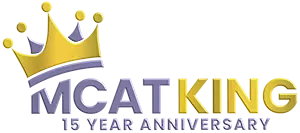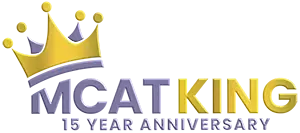Should I Skip College for a BS/MD Program? Pros and Cons

Home • Should I Skip College for a BS/MD Program? Pros and Cons
For many aspiring physicians, the idea of skipping the traditional four-year college route and entering a combined BS/MD program is both exciting and daunting. These programs offer a direct pathway from high school to medical school, often without requiring the MCAT or the uncertainty of reapplying later.
But is it the right decision for every student?
The choice to pursue a BS/MD program instead of a traditional undergraduate experience carries long-term consequences for your education, lifestyle, and career. Understanding both the advantages and drawbacks is essential before committing to such an accelerated path. So, let’s dive deep and take a look.
Understanding BS/MD Programs
A BS/MD program is a combined degree track where students earn both a bachelor’s degree and a Doctor of Medicine (MD) degree. Typically, these programs last between 7 and 8 years, though some accelerated options can be completed in 6 years.
Who they are for:
High-achieving high school students who already know they want to become doctors and are prepared to commit early.
How they differ from traditional paths:
Instead of completing a bachelor’s degree and then applying to medical school through AMCAS, students secure conditional acceptance to medical school as high school seniors.
Flexibility:
While some BS/MD programs waive the MCAT entirely, others require it but with a lower benchmark score than traditional applicants.
Pros of Choosing a BS/MD Program
Early Assurance and Reduced Stress
The strongest advantage is the security of knowing you already have a seat in medical school. With medical school acceptance rates around 40% nationwide, this guarantee lifts an enormous weight off students. You can focus on academics and extracurriculars you genuinely enjoy instead of tailoring every choice to strengthen a traditional medical school application.
Fewer or No MCAT Requirements
The MCAT is notorious for its rigor, often requiring 300–400 hours of study. Many BS/MD programs waive the MCAT entirely, while others set a lower score threshold than traditional applicants face. This allows students to use their time for research, service projects, or other intellectual pursuits instead of spending months preparing for the exam.
Time Efficiency
Some programs compress the standard timeline, enabling students to complete both undergraduate and medical degrees in 6 or 7 years instead of 8. This not only accelerates the path to residency but also reduces tuition costs and living expenses. Entering the workforce earlier can also provide a financial advantage.
Flexibility in Undergraduate Coursework
Because BS/MD students already know they are headed to medical school, they often have the freedom to take courses outside of the sciences. This flexibility allows them to explore humanities, languages, or arts—fields that can enrich their perspective as future physicians.
Mentorship and Strong Advising
BS/MD programs are designed for small, highly selective cohorts. Students often benefit from individualized advising, structured mentorship, and early integration into the medical school community. This support system can provide guidance and networking opportunities that are harder to come by in the traditional route.
Cons of Choosing a BS/MD Program
Limited Exploration
At 17 or 18 years old, it is rare to have complete certainty about a lifelong career. Committing to medicine this early limits your ability to explore other academic or professional interests. If you later discover a passion for law, business, or another field, leaving a BS/MD program can be complicated.
Highly Competitive Admissions
While the programs promise security, gaining admission is exceptionally difficult. Acceptance rates are often below 5%, with most admitted students showing nearly perfect GPAs, SAT scores above 1500, or ACT scores of 34–36. The application process is demanding and can add stress during an already intense senior year of high school.
Restricted College Experience
Traditional college offers room for exploration, from switching majors to studying abroad. BS/MD students, while secure, often follow stricter curricula and may miss some aspects of the classic undergraduate experience. The social and intellectual freedom of college can be as formative as academics, and some students may feel constrained without it.
Binding Commitment
Many BS/MD programs require students to commit to one medical school. If you later decide that another school would be a better fit for your career goals, your options may be limited. This lack of flexibility can feel restrictive for students who want more freedom to choose later.
Risk of Burnout
Medicine is already a long and demanding journey. Entering the path earlier without the opportunity to pause and reassess increases the risk of burnout. Some students may benefit from the extra time to mature during a traditional college experience before diving into medical school.
Questions to Ask Yourself Before Choosing a BS/MD Path
- Am I confident that medicine is my true calling, or do I still want to explore other fields?
- Am I comfortable committing to one institution for both undergraduate and medical education?
- Do I value security and structure more, or freedom and flexibility?
- Am I academically and emotionally prepared for the fast pace of an accelerated program?
- Do I want the traditional college experience, with opportunities to explore widely before specializing?
Balanced Perspective
There is no universal answer. The right decision depends on your readiness, your confidence in medicine as a career, and your willingness to prioritize long-term goals over short-term experiences.
Final Thoughts
A BS/MD program can provide security, efficiency, and unparalleled support for students who are ready to commit to medicine at an early age. At the same time, it can limit exploration, reduce flexibility, and heighten the risk of burnout. Neither path is inherently better than the other. The key is understanding which aligns more closely with your personality, goals, and readiness.
If you are deeply certain about becoming a physician, a BS/MD program can save time, reduce stress, and provide a clear path forward. If you are still discovering who you are and what excites you academically, a traditional college route may give you the space you need to grow. The best choice is the one that sets you up not only for acceptance but also for long-term fulfillment in medicine and in life.




